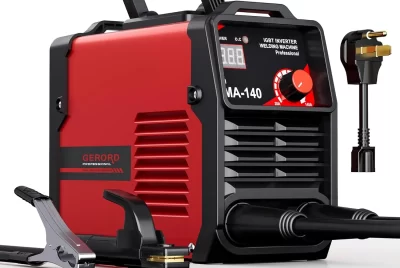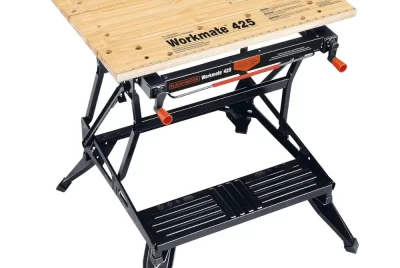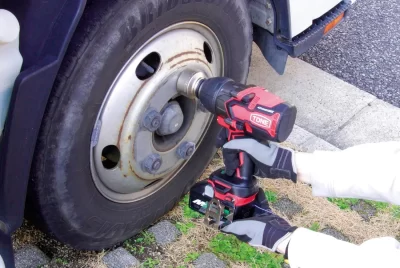Ultimate Guide to Automotive Tools: Must-Haves for Car Owners
As an avid car enthusiast and a passionate advisor in the realm of garage tools, I am excited to present to you the ultimate guide to automotive tools. Whether you’re a seasoned car owner or a novice in the world of automobile maintenance, having the right tools can make a world of difference. In this comprehensive guide, I will walk you through the must-have tools for every car owner, explaining their importance and providing useful suggestions along the way. So, let’s gear up and dive into the world of automotive tools!
Table of Contents
1. Introduction: The Importance of Automotive Tools
2. Safety First: Essential Safety Gear
3. Toolbox Essentials: Basic Tools for Every Car Owner
• Wrenches and Socket Set
• Screwdrivers
• Pliers and Vice Grips
• Torque Wrench
• Jack and Jack Stands
4. Keeping It Clean: Tools for Car Maintenance
• Car Wash Kit
• Microfiber Cloths and Brushes
• Vacuum Cleaner
• Tire Pressure Gauge
5. Diagnosing and Fixing: Tools for Troubleshooting
• OBD-II Scanner
• Multimeter
• Compression Tester
• Oil Filter Wrench
6. Going the Extra Mile: Specialized Tools for Advanced Car Owners
• Impact Wrench
• Brake Caliper Tool
• Timing Light
• Fuel Pressure Gauge
7. Conclusion
8. FAQs
1. Introduction: The Importance of Automotive Tools
As a car owner, being equipped with the right set of tools is essential for various reasons. Not only does it allow you to perform basic maintenance tasks on your own, saving you time and money, but it also empowers you to handle unexpected repairs and troubleshoot issues when they arise. Automotive tools are like an extension of your hands, enabling you to tackle various tasks with precision and efficiency. Now, let’s explore the essential tools that should be part of every car owner’s arsenal.
2. Safety First: Essential Safety Gear
Before diving into the world of automotive tools, it’s crucial to prioritize safety. Investing in the right safety gear ensures you can work on your vehicle with confidence and reduce the risk of accidents or injuries. Here are some must-have safety items:
Safety Glasses
Protecting your eyes from debris, chemicals, and sparks is paramount. Invest in a pair of high-quality safety glasses that provide clear vision and wrap-around protection.
Work Gloves
Durable work gloves shield your hands from cuts, abrasions, and chemicals. Look for gloves with good grip and flexibility for better control while handling tools.
Ear Protection
The loud noises produced during car repairs can damage your hearing over time. Invest in a pair of earplugs or earmuffs to safeguard your hearing.
Protective Clothing
Wearing appropriate clothing, such as coveralls or long-sleeved shirts, protects your skin from chemicals, sharp edges, and hot surfaces.
3. Toolbox Essentials: Basic Tools for Every Car Owner
To kickstart your automotive tool collection, there are a few fundamental tools that every car owner should possess. These tools will come in handy for basic maintenance tasks and minor repairs. Let’s take a closer look at them:
Wrenches and Socket Set
A set of wrenches and a socket set are indispensable when it comes to loosening and tightening nuts and bolts. Opt for a combination wrench set and a socket set with various sizes to cover different fasteners.
Screwdrivers
Having a set of screwdrivers with both flathead and Phillips heads allows you to tackle a wide range of fasteners, from engine components to interior trim pieces. Invest in high-quality screwdrivers with comfortable grips.
Pliers and Vice Grips
Pliers and vice grips are versatile tools that come in handy for gripping, bending, and twisting various components. They are essential for tasks such as removing hoses, holding small parts, and accessing hard-to-reach areas.
Torque Wrench
When it comes to tightening bolts to the manufacturer’s specifications, a torque wrench is indispensable. It ensures that you achieve the proper torque, preventing over-tightening or under-tightening that could lead to costly damage.
Jack and Jack Stands
A reliable hydraulic jack and a set of sturdy jack stands are vital for safely lifting your vehicle off the ground during maintenance or repairs. Never work under a car supported solely by a jack.
4. Keeping It Clean: Tools for Car Maintenance
Maintaining the cleanliness of your car not only keeps it looking sharp but also helps prevent damage to the exterior and interior surfaces. Here are some essential tools for keeping your vehicle spick and span:
Car Wash Kit
Investing in a quality car wash kit with pH-balanced soap, microfiber mitts, and a soft-bristle brush ensures that you can safely and effectively wash your car without causing scratches or swirl marks.
Microfiber Cloths and Brushes
Microfiber cloths are excellent for drying and detailing your car, as they are soft and absorbent, leaving no lint or streaks behind. Additionally, having a set of detailing brushes helps you clean hard-to-reach areas such as vents and crevices.
Vacuum Cleaner
To keep the interior of your car free from dust, dirt, and debris, a portable vacuum cleaner is a must. Opt for a model with various attachments to tackle both carpeted and hard-to-reach areas effectively.
Tire Pressure Gauge
Maintaining the correct tire pressure is crucial for optimal performance and safety. A tire pressure gauge allows you to monitor and adjust tire pressure as needed, ensuring proper inflation.
5. Diagnosing and Fixing: Tools for Troubleshooting
When faced with car troubles, having the right diagnostic and repair tools can save you from unnecessary trips to the mechanic. Here are some essential tools for troubleshooting common car issues:
OBD-II Scanner
An OBD-II scanner plugs into your car’s onboard diagnostic system and reads error codes, providing valuable insights into potential problems. Look for a scanner that is compatible with your car’s make and model.
Multimeter
A multimeter is a versatile tool that allows you to measure electrical voltage, resistance, and continuity. It comes in handy when diagnosing electrical issues, such as a malfunctioning sensor or a faulty circuit.
Compression Tester
A compression tester helps you assess the health of your engine by measuring the compression pressure in each cylinder. This tool is vital for diagnosing issues such as worn piston rings or leaking valves.
Oil Filter Wrench
Changing your car’s oil is a routine maintenance task. An oil filter wrench enables you to easily remove and install oil filters, ensuring a proper seal and preventing leaks.
6. Going the Extra Mile: Specialized Tools for Advanced Car Owners
If you’re an advanced car owner who enjoys tackling complex repairs or modifications, there are several specialized tools worth considering. These tools can make your automotive endeavors more efficient and rewarding:
Impact Wrench
An impact wrench is a powerful tool that makes removing stubborn nuts and bolts a breeze. It utilizes high torque to break free rusted or overtightened fasteners without requiring excessive physical effort.
Brake Caliper Tool
When performing brake maintenance, a brake caliper tool is essential for compressing the caliper piston back into position. It simplifies brake pad replacement and helps prevent damage to the caliper or brake lines.
Timing Light
For precise timing adjustments, a timing light is invaluable. It allows you to accurately measure the ignition timing and ensure optimal engine performance. This tool is particularly useful for older vehicles or those with adjustable timing.
Fuel Pressure Gauge
If you’re dealing with fuel system issues, a fuel pressure gauge is a must-have tool. It helps you diagnose fuel delivery problems, such as low pressure or a failing fuel pump, by measuring the pressure in the fuel lines.
7. Conclusion
Congratulations! You have now been equipped with the knowledge of essential automotive tools. By having these tools at your disposal, you can confidently handle basic maintenance tasks, troubleshoot problems, and even embark on more advanced repairs. Remember to prioritize safety and invest in the right safety gear before diving into any automotive project. With the right tools and a little bit of know-how, you’ll be able to maintain and repair your car like a pro, saving both time and money in the long run.
FAQs (Frequently Asked Questions)
1. Can I use regular household tools for car repairs?
While some household tools may be suitable for basic tasks, it’s recommended to invest in automotive-specific tools. These tools are designed to withstand the demands of automotive work and provide better performance and accuracy.
2. Should I buy individual tools or invest in a complete tool set?
It depends on your needs and budget. If you’re just starting out, purchasing a complete tool set can be a cost-effective option. However, if you already have some tools, you can gradually expand your collection by purchasing individual tools as needed.
3. Are cheaper tools of good quality?
Quality is crucial when it comes to automotive tools. Cheaper tools may be tempting due to their lower price, but they often lack durability and precision. Investing in high-quality tools ensures they will last longer and provide accurate results.
4. How often should I replace my tools?
With proper care and maintenance, quality tools can last for many years. However, if you notice signs of wear, such as rust, stripped threads, or damaged grips, it’s time to replace them to ensure safe and efficient work.
5. Can I borrow tools instead of buying them?
Borrowing tools can be a viable option, especially for infrequent or one-time use. Consider borrowing from friends, family, or local tool lending programs. However, if you plan to work on your car regularly, owning your own set of tools is more convenient in the long run.




